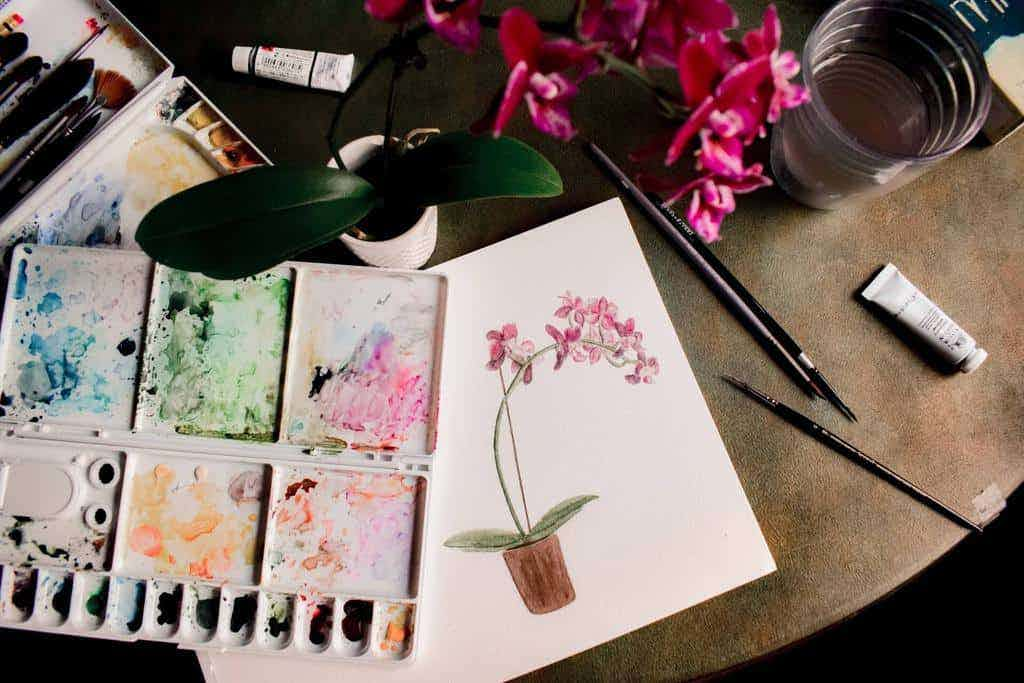Feel like you're stuck in a rut? Hobbies are an excellent way of using your free time productively and breaking your daily routine. Depending on the hobby you choose, research shows you could also reap some remarkable and unexpected benefits.
What the experts say: the benefits of starting a new hobby
1. Mental benefits of hobbies
Research suggests engaging in hobbies improves mental wellbeing. A study published in the American Journal of Alzheimer’s Disease and Other Dementias compared participants with a high (one hour per day) and low (less than 30 minutes per day) time commitment to hobbies. The findings suggest that “engaging in hobbies for one or more hours every day might be protective against dementia in late life”.
Another similar study monitored the progress of older adults who spent several hours a week learning a new craft over a few months. Researchers concluded that participants showed improvements in cognitive performance, suggesting crafts could contribute to positive ageing experiences.
Age UK points to the social benefits of starting a new hobby. They say that staying socially connected may help to maintain strong thinking skills. Starting a new hobby is a great way to meet new people, whether or not your hobby is a group activity. Online communities on forums and social media sites exist for almost any pastime, as do regular meetups for hobby enthusiasts.
2. Health benefits of exercise
The NHS website advises adults to be active every day. Recommendations about the intensity and quantity of exercise vary depending on a person’s age group, physical ability, and their current level of activity. For more information, have a look at the NHS' guidelines on exercise.
These guidelines state that regular exercise "can reduce your risk of major illnesses, such as heart disease, stroke, type 2 diabetes and cancer by up to 50% and lower your risk of early death by up to 30%." A wide range of research supports this idea. A 2014 journal article discussed the role of exercise in preventing or delaying chronic illnesses. Their findings suggest that “physical inactivity is one important cause of most chronic diseases”.
If you take up a new sport for health reasons, it’s a good idea to follow the advice of trained professionals who can adapt movements or intensity for different levels. However, starting a craft or learning-based skill can still increase your fitness. Walking or cycling to your new hobby will raise your weekly exercise levels. If you’re not used to regular exercise, your GP can advise you about which activities are most suitable for you.
3. Making something for yourself
If you decide to take up a crafty or green-fingered hobby, you can benefit from the items you make. You could display them, give them away as presents, or use them in your everyday life. Seeing what you have made is rewarding, and has practical benefits too!
A two-year study in Wyoming, US analysed the productivity of household food gardens. Researchers found that a 253-square-foot plot produced nine months’ worth of vegetables for an adult. Gardening vegetables can help to improve your diet, keep you active, and allow you to learn about the natural environment.
If gardening isn't for you, there is a wealth of other wonderful hands-on hobbies you can try. DIY, crafts, sewing, and writing can become exciting and fulfilling pastimes. For more ideas on which hobbies to try, see our list below.
Which new hobby should I start?
When deciding which hobby to start, it’s a good idea to define your goals. Consider the following questions:
- Do you want to start something new or take up an old skill?
- How long do you want to spend doing your hobby each week?
- How much money do you want to spend?
- Would you prefer a structured class or a self-taught delivery method?
- Do you want a year-round or seasonal hobby?
Once you have considered the points above, it's time to start researching! You will need to know what equipment you need for your new hobby and what your first steps should be. Here are a few examples of exciting hobbies for inspiration.
Cooking as a hobby
Cooking makes a fantastic hobby for amateur cooks and professional chefs alike. We all have to eat, so why not spice up your daily routine with interesting new dishes? As it’s a year-round hobby, you could change your recipes with the seasons to incorporate local ingredients or venture into foreign supermarkets for a more international flavour.
For more information on how to start cooking as a hobby, have a look at our recent article on five hobbies to try before winter.
Dancing regularly
Dancing is an expressive activity that can improve fitness and boost mood. It’s possible to learn to dance by yourself, with a partner, or with new classmates at a dance school or gym. There are so many different styles to choose from that you’ll be spoilt for choice!
Learning from professional classes will usually cost £5-£10 per session. You will need specific shoes for some dance styles such as tap and jazz, but you can wear regular exercise clothes for many others. For tips on finding a local dance class, check out our blog!
Tracing your family tree
Tracking down family roots can become a fascinating hobby. It’s also a more social activity than you might think. You may need to talk to family members, track down old documents, contact archivists, and even visit churches and town halls. Your family history could take you to any part of the UK and even abroad.
With today's technology, tracing family is more straightforward than in previous years. Online DNA databases exist to help people as they begin their journey, as do blogs and society websites run by specialists. If you're thinking about making a family tree, our guide is a great place to start.
Have you started a new hobby recently? Leave a comment below to tell us how you're getting on!








